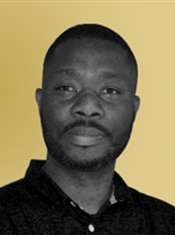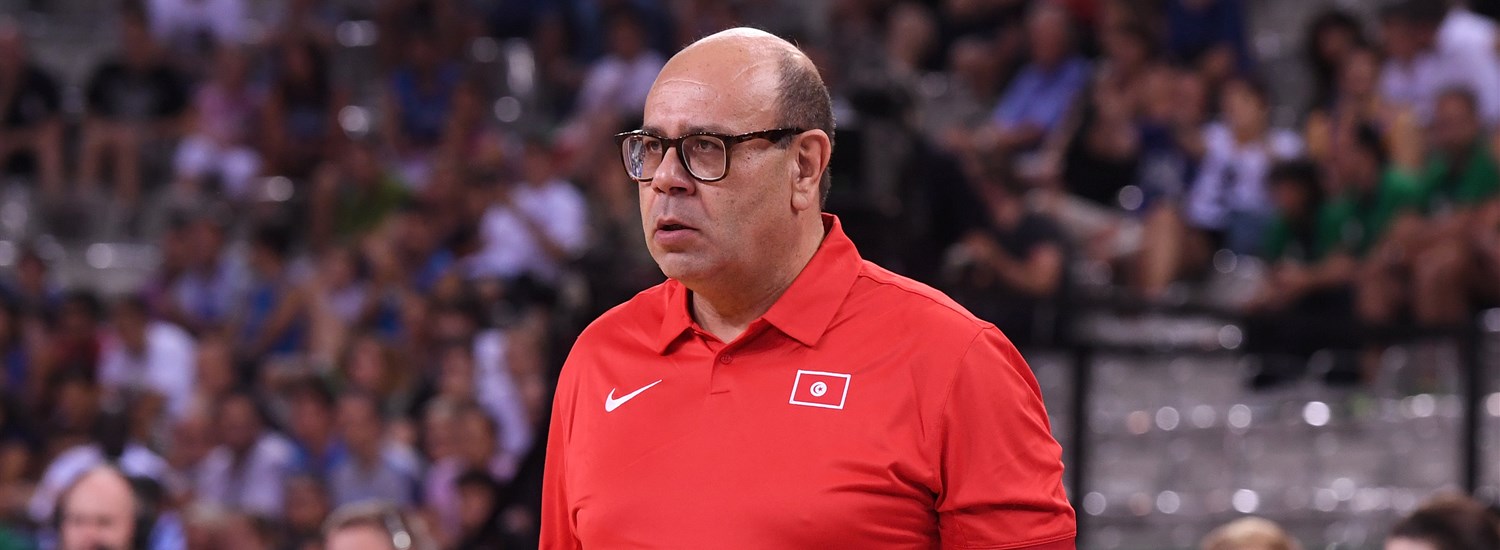
Inside the process of coaching at the highest level in African basketball (continued)
LEEDS (Julio Chitunda's African Message) - Continuing inside the process of coaching at the highest level in African basketball, four current and/or former national teams head coaches share four different visions, but they also reveal one common denominator: Management of the game in Africa needs urgent improvement.
In Part 1 of this topic, Cheikh Sarr, Amr Aboul Kheir, Will Voigt and Zejko Zecevic shed light on the challenges of coaching in Africa although some showed a certain degree of optimism about the growth of basketball on the continent.
In relatively similar tone, here is Part 2 of "Inside the process of coaching at the highest level n African basketball."
Seven years ago, I wrote a column about how Adel Tlatli's coaching career was one of a kind in African basketball. He was one of few national teams' head coaches who benefited from a full-time contract.
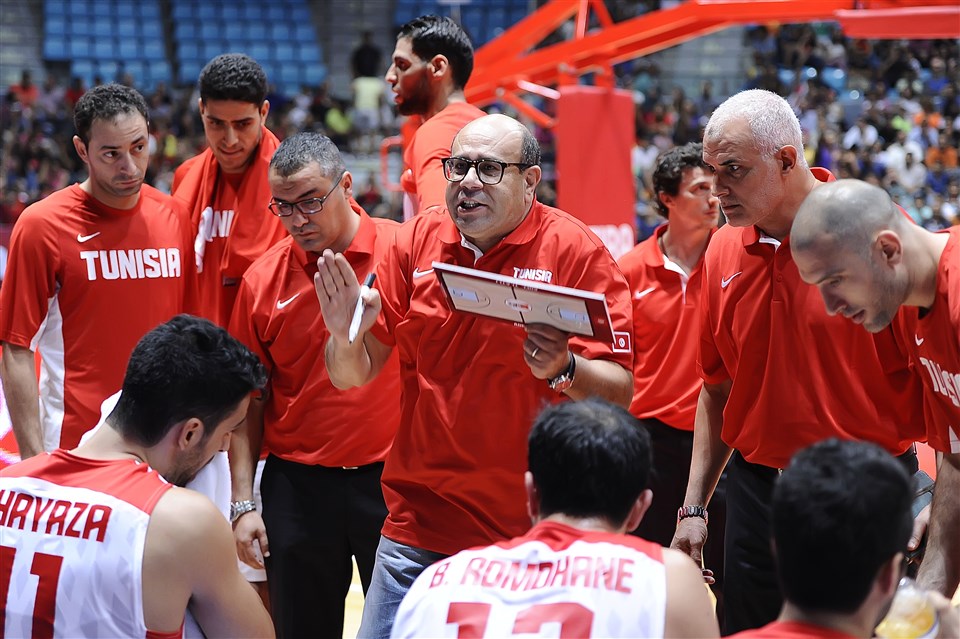
Tlatli's contractual situation, which spanned for almost a decade, allowed him to scout for new talents, it allowed him to travel and improve his coaching skills with renowned basketball coaches, he also was able to plan warm-up games ahead of major tournaments.
He was a key part of the transformation of basketball in Tunisia. From an average team on the continent in early 2000s to becoming a major player in African basketball today, Tlatli witnessed it all.
After studying in detail how the Angolans dominated African basketball for so long, Tlatli felt 2011 was the year to change the course of history.
With a group of talented young players with likes of Salah Mejri, Makram Ben Romdhane and Marouan Kechrid, Tlatli's Tunisia shocked Angola in the final of the 2011 FIBA AfroBasket to win their first-ever African title. The rest is history.
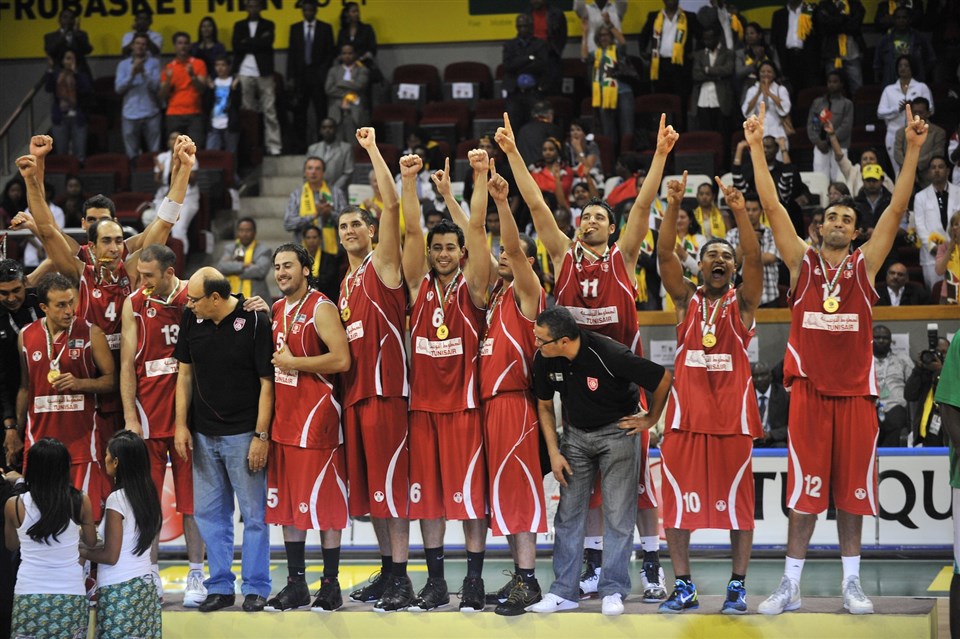
Tlatli's Tunisia were crowned 2011 African Champions in Antananarivo
Asked to share his view on the process of coaching in Africa, the former Tunisia head coach noted: "When you are handed a coaching job, at first, things tend to be difficult due to the lack of staff to support you. Most of the [administrative] work is carried out by the head coach.
"Basketball wasn’t a popular sport [in Tunisia] back in the days. But after we started to achieve good results in 2009 [Third-Place finish at AfroBasket] things started to improve. We started to get better working conditions and more staff. In addition to the good results, sponsors started to show interest in working with us and it helped improve our working conditions.
"In Africa only a few national teams do planning based on continuity. They sign a new coach a month before the tournament, go for a training but they don’t prepare for friendly games or do long term plans, that’s why I think some national teams face difficulties.
"The supremacy of Angola for many years wasn’t a coincidence. It was a long term work, vision with planning. Tunisia started doing the same in 2008 and the results are here for everybody to see.
"One of the problems that affect the growth of African basketball is poor management in addition to lack of resources. Federations need qualified management.
"If you want African basketball to improve, we have to start working seriously from the Under-15 or even Under-10 teams onwards. Also a national championship of good quality is as important. One of the reasons for our growth as a team was the impact of our national championship because the majority of our players used to play in Tunisia. Salah [Mejri] was the only one playing abroad in 2010. With most players based at home we can organise training camps once every two months.
The @NBA and @FIBA's Basketball Africa League, announced at the 6th annual #NBAAllStar Africa Luncheon, is set to tip off in early 2020🌍🏀 pic.twitter.com/sBJwYhYNcP
— NBA Africa (@NBA_Africa) February 19, 2019
"Another important aspect for improvement of the game in Africa is the creation of a high level continental Clubs Championship, just like the Basketball Africa League [BAL], which is expected to happen.
"Players in the age group 18 to 24 are fundamental. Some of them play at the U18 African Championship and or the U19 World Championship, but that’s the end their careers as they spend the next five or six years without playing for the national team.
"When you have players still playing for the national at the age 38 or 39, that is a problem. Why do some African national teams have ageing players? Because they don’t know how to integrate younger players to their programmes, this is recurrent problem in African basketball. We have problems to prepare for the future. We are focused on preparing for the next continental Championship," Tlatli concluded.
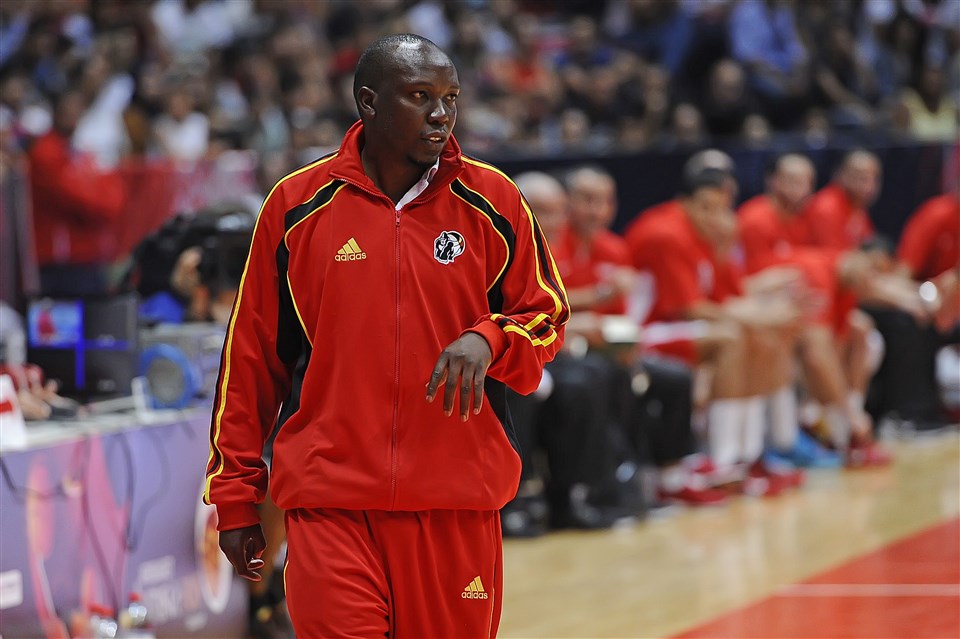 Mandy Juruni (Uganda) in action at 2015 FIBA AfroBasket
Mandy Juruni (Uganda) in action at 2015 FIBA AfroBasket
Mandy Juruny has witnessed the growing popularity of basketball in Uganda in recent times both as a player and coach.
Head coach of local side City Oilers, Juruny has served as assistant and head coach to the 'Silverbacks' at FIBA Africa major competitions.
Under Juruni, Uganda made their FIBA AfroBasket debut in 2015 in Tunisia. He helped his country qualify for the African Championship two years later but was replaced by George Galanopoulos although he continued as an assistant coach.
"It is an honour coaching basketball for both my country and City Oilers Basketball Club," Juruni said.
"Both teams have been involved playing basketball in the highest competition in Africa. So, this has given me the platform to coach against the top teams and top coaches in Africa. It has made me grow as a coach and my teams.
"So, back home you always have that mindset of getting yourself better and the team better because you want to do better.
"African teams have different different styles of playing. North Africans tend to play at a high pace, they move that ball with lots of screens and the West Africans are strong and big. So you prepare for both styles. As a coach you have to prepare for both and also try to make your team play the same.
Juruni continued: "Basketball in Africa in the next few years is going to be better as we have a lot of talent in Africa. Facilities have improved in Africa. Management of clubs and federations have improved. So, with all those put in place I see growth."
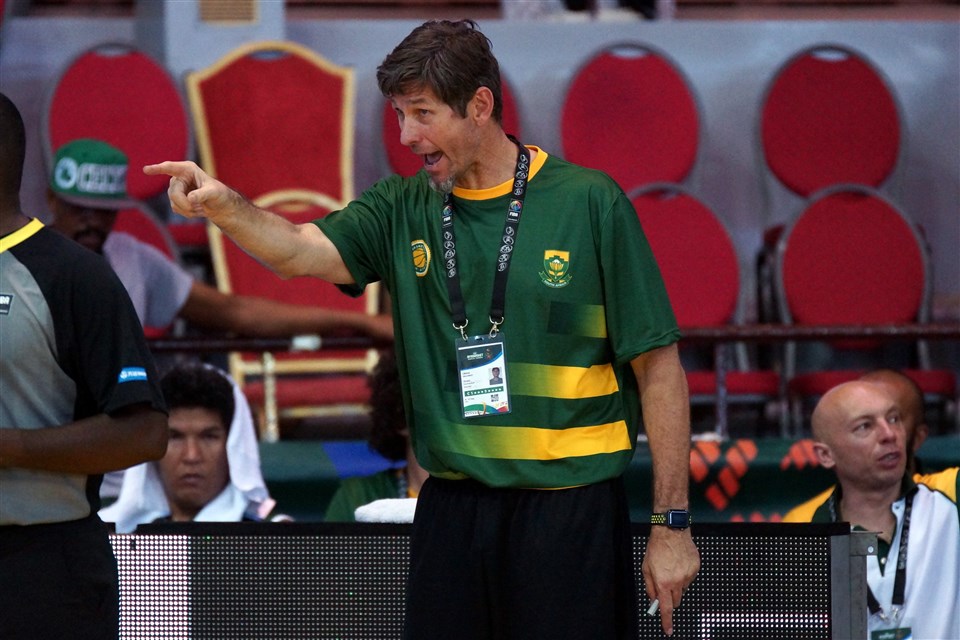 Craig Gilchrist (South Africa) is seen in action at 2017 FIBA AfroBasket
Craig Gilchrist (South Africa) is seen in action at 2017 FIBA AfroBasket
Former South African international Craig Gilchrist continues to pray for the future of his country's basketball.
Gilchrist played at the 2005 FIBA AfroBasket in Algeria, and last coached South Africa at the 2017 African Championship co-hosted by Tunisia and Senegal.
Gilchrist insisted that coaching for your country at the international level is always an honour and a privilege.
However, he noted, "coaching for a country like South Africa is a struggle, where your National Federation is in a state of disarray and has no funding or resources. (We were unable to attend qualifiers this year due to no funds). Government Sports Department has no interest in supporting basketball which is viewed as a minor sport in South Africa."
Chad replace South Africa in FIBA Basketball World Cup 2019 African Qualifiers https://t.co/Yc4P68kxOD
— Sportando (@Sportando) November 10, 2017
"Corporate sponsors are interested in supporting the "big 3 sports" Football, Rugby and Cricket. So although it is an honour and a a privilege it is a struggle as well.
"Basketball in Africa is going to explode in the ‘bigger basketball nations’ on the continent, sadly though that will widen the divide between the top tier countries and us minnows who are struggling for recognition in our own countries."

Faid Bilal (Algeria) in action at 2013 FIBA AfroBasket
Algerian Faid Bilal was a 35-year-old when he coached his country to a Second-Place finish at 2001 FIBA AfroBasket in Morocco.
A year later the country's Basketball Federation renewed his contract to lead Algeria at the 2002 FIBA Basketball World Cup in Indianapolis where the North Africa claimed a 1-4 marks thanks to a 100-70 win over Lebanon.
Over the past few years Bilal has coached Algeria men's team on several occasions, and has been in charge of the team since 2019.
After missing on the African Championship three years ago, Algeria have qualified to the 2021 FIBA AfroBasket Qualifiers.
Bilal remains optimistic about the future of the game in Africa: "The gap between African and European teams is narrowing and I am confident that in the next five years we are going to be capable of beating European teams. All we need to do is continue to work hard and be positive. We also need to reflect on how to get the players together at the right time so that we can have a training period that allows us to build a team chemistry.
"The level of basketball in Africa is getting better and better as there are more and more Africa players competing in Europe and in the NBA. This is a great opportunity for some countries to build strong national teams, and Nigeria is a perfect example of this."
Coaching in Africa continues to be a complex and fascinating world. Surely, professional National Federations are key to the growth of the game on the continent, at least that is my impression from these eight head coaches' views.
Julio Chitunda
FIBA
FIBA's columnists write on a wide range of topics relating to basketball that are of interest to them. The opinions they express are their own and in no way reflect those of FIBA.
FIBA takes no responsibility and gives no guarantees, warranties or representations, implied or otherwise, for the content or accuracy of the content and opinion expressed in the above article
